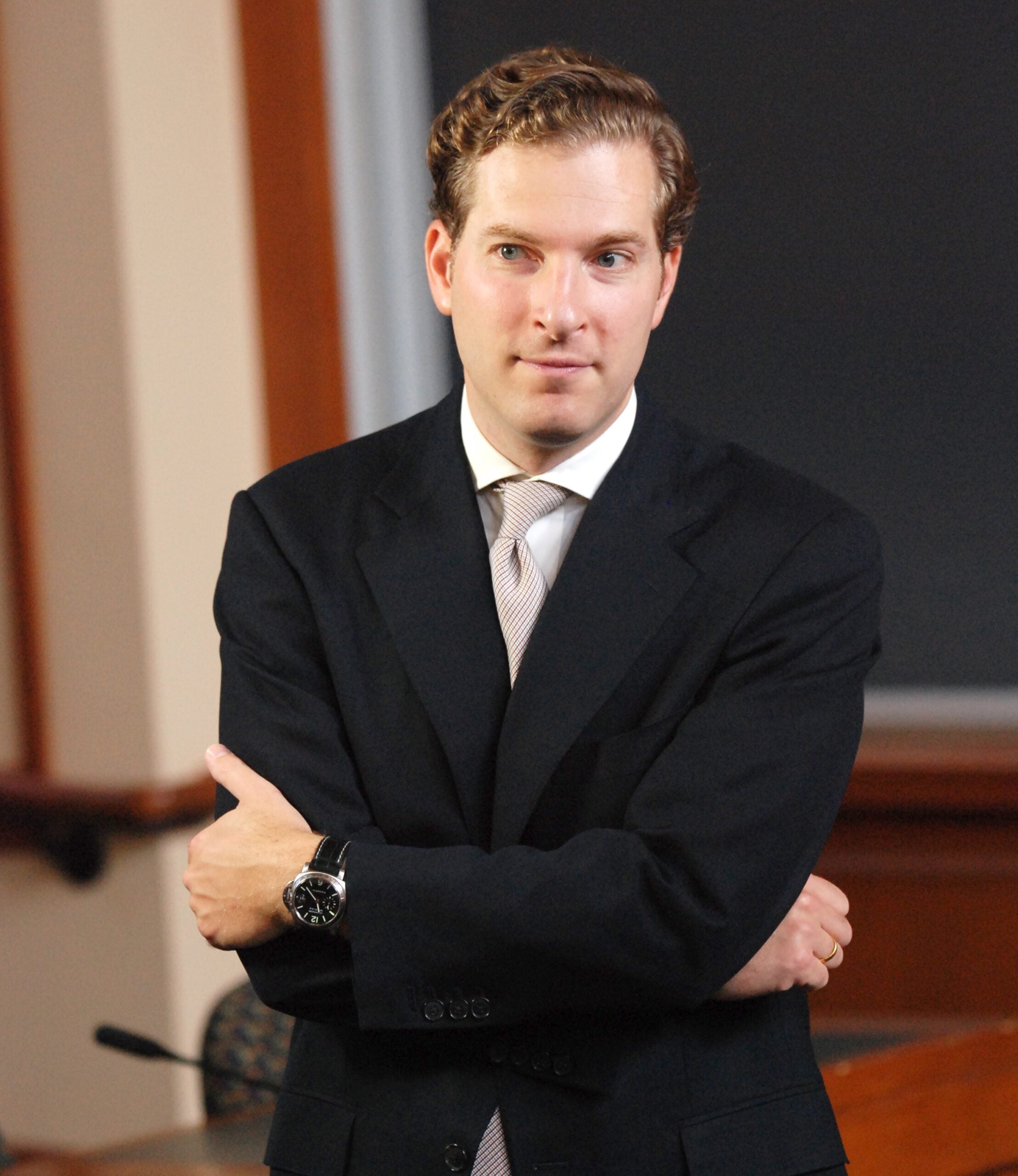The following piece by Harvard Law School Professor Noah Feldman appeared in Bloomberg View on Sept. 14. Feldman, who is the Bemis Professor of International Law at HLS, is a regular contributor to Bloomberg View and the author of many books, including “Scorpions: The Battles and Triumphs of FDR’s Great Justices” (Twelve Books 2010), and “The Fall and Rise of the Islamic State” (Princeton University Press, 2008).
The view from Tunis: Fire, tear gas, and normalcy
By Noah Feldman
I’ve had my share of surreal Middle East moments in Iraq and elsewhere. But little to beat the weirdness of sitting in the lobby of the Tunisian constituent assembly building today, along with elected representatives, journalists and civil society activists, watching the U.S. Embassy being stormed by angry Salafis.
The embassy is some eight miles from the Bardo, as the gracious old parliament building is called. So we were watching a live Al Jazeera feed, not using binoculars.
On the screen, the protesters had taken down the American flags on the embassy compound walls and replaced them with the black flags of the Salafi movement. “No god But God and Muhammad is the Prophet of God,” the flags read. The police moved in and fired tear gas and bullets. Something was on fire inside the embassy perimeter, and black smoke was pouring out above the white clouds of tear gas. The protesters were throwing the gas canisters back at the police. In the Al Jazeera images, it looked like they were throwing rocks, too. The police would advance, then retreat. Agence France Press reported three killed and 28 injured.
The Tunisians inside the assembly building were uniform in their condemnation of the violence. “I promise you this is not the true Islam,” said one head-scarfed young woman who described herself as a freelance journalist. “If our Prophet were here he would not act in this way.”
Members of Ennahda, the ruling Islamic democratic party, said they were frustrated with the provocations of the anti-Muhammad movie “Innocence of Muslims” and by those of the anti-U.S. protesters. Moderate Islam, they intimated, was being threatened from both sides.
Nonetheless, huddled around well-worn couches, small groups watched the events breathlessly, reacting to every twist and turn. “The ambassador was evacuated!” one called out in Arabic, more in surprise than anger. They seemed stunned to see the images of smoke and tear gas from right inside their own city.
When Al Jazeera reported that protesters had entered and then left the U.S. Cultural Center, on the embassy campus, one woman (who identified herself as a law student) exclaimed, “I hope they don’t burn it down! I study there, and I need the books!”
A few feet away, a senior Ennahda parliamentarian gave an impromptu interview to local journalists. He called the protests a “shame,” and insisted that Islamic tradition requires respectful treatment of ambassadors.
Yet throughout, things remained more or less normal in the Bardo. The day had been planned as a chance for civil society groups to meet with the constitutional drafting committees — and those meetings went on, under the eye of the free press.
As the day wound down, people started to head home, worried about traffic in case a curfew was declared. It was unclear whether the protesters had all been dispersed — but that didn’t seem to matter.
There is an important lesson here, one that can easily be missed amid the headlines of protests throughout the Muslim world on Friday. Crowds may have marched from prayers to embassies and caused violence leading to injuries and deaths. But at least in Tunis, if you weren’t in front of the embassy or a television, you wouldn’t know any of it was happening.
Most people, most of the time, are not motivated to protest even so offensive a film. Plenty of deeply believing Muslims think that the proper response to such a provocation is to ignore it.
The point is not to downplay the significance of the protests. In Tunis, the Salafis were mounting a challenge to the authority of the elected government. And the embassy staff members here were trapped in the compound, just days after the horrifying deaths of four Americans, including our ambassador, in Benghazi, Libya.
Yet this violence coexisted with an almost ideal version of constitutional debate and discourse by elected officials and public-spirited citizens. This, too, happened in part under the banner of Islam — but a very different Islam than the one that was on display at the embassy.
The struggle for the hearts and minds of young Muslims is being played out here and elsewhere in the post-Arab Spring world. The protests must be understood as part of that process. The violence, sadly, may work in the Salafis’ favor. But that doesn’t mean the Salafis will prevail. To the contrary, they remain a small minority in Tunis, repudiated by the Islamic democrats in the government.
As I left the Bardo, the neighborhood cafes were full. The sun was going down, and the sky was the penetrating Mediterranean blue of early dusk. Life was normal. Even the traffic was no worse than usual. This, too, is part of the new Middle Eastern reality — strange as it may seem.
